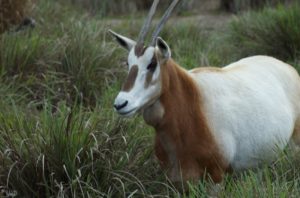“Animals cannot be treated merely as Property”
By Mari Margil –

On July 4, the High Court of Uttarakhand at Naintal in northern India issued a ruling in a case brought to end cruelty of horses used in transport. The court declared that:
“Every species has an inherent right to live and are required to be protected by law.”
The decision is part of unprecedented advancement in the growing Rights of Nature movement that includes the work of the Community Environmental Legal Defense Fund (CELDF). Beginning in 2006, CELDF assisted the first communities in the United States – the very first places in the world – to advance the rights of nature into law. CELDF has now assisted more than three dozen communities across the U.S., as well as the first country in the world – Ecuador – to secure the rights of nature to exist and flourish.
In this week’s India case, Narayan Dutt Bhatt v. Union of India & others, the High Court explained that declaring the animal kingdom as possessing rights is necessary “in order to protect and promote greater welfare of animals including avian and aquatic.”
Citing the growing extinction rates of animals – which today exceeds 1,000 times natural background rates – the Court explained, “The loss of one species causes immense damage to the entire ecosystem.”
Further, the Court explained that the growing environmental crises across the globe – including climate change – reveals “there are gaps in laws” that need to be addressed to protect the environment.
Such laws treat nature, including animals, as property without legal rights. The Court asserted that this needs to change. “Animals cannot be treated merely as property” existing for human use. Rather, the Court wrote that to address this deficiency in the law related to the environment, “New inventions are required to be made in law to protect the environment and ecology,” including the recognition of legal rights of nature.
The ruling by the High Court follows rulings it issued in 2017. The Court declared legal rights of certain ecosystems, including the Ganges River. Similarly in Colombia, the Courts issued two rulings in which the Atrato River and the Colombian Amazon region now possess legal rights.
Courts are reaching these decisions as they witness the severe decline of the environment, despite numerous environmental laws. As Colombia’s Constitutional Court explained in its 2016 decision recognizing rights of the Atrato River, in which it described the many ways in which human activity was jeopardizing the environment, “(J)ustice with nature must be applied beyond the human scenario and must allow nature to be a subject of rights. Under this understanding, the Court considers it necessary to take a step forward in jurisprudence….”
In its ruling this week, the High Court describes the growing movement to recognize rights of nature.
(For the balance of this article please visit: https://celdf.org/2018/07/press-release-india-court-declares-legal-rights-of-entire-animal-kingdom/)








